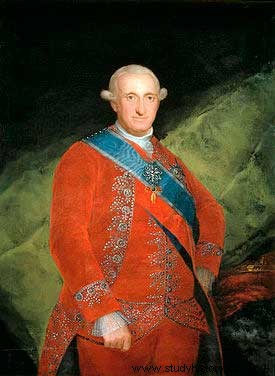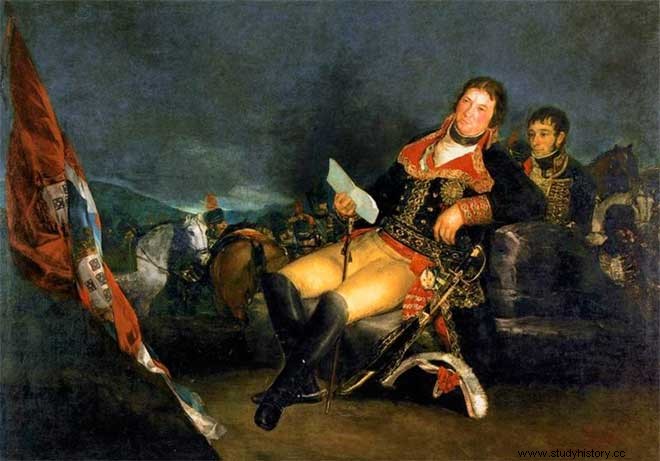Following the advice of his father, Carlos IV kept Floridablanca as chief minister. The Cortes, which were convened in September 1789 to recognize the heir to the throne, the future Ferdinand VII, heard a statement from Campomanes on agrarian reform, after which they were interrupted on the pretext that a prolonged session would entail excessive spending. In reality, Floridablanca, who calmly received the first Parisian demonstrations, was concerned about the turn events were taking in France. His concern quickly turned to panic. To prevent contagion, he established a kind of cordon sanitaire at the borders. He took a census of foreigners, especially the French, some of whom were expelled. He monitored travelers and emigrants who began to arrive from the summer of 1789. Finally, the Inquisition was commissioned to combat subversive propaganda that penetrated under overlapping forms.
Execution of Louis XVI

After 1792 things got worse. The Terror, the arrest, trial and execution of Louis XVI plunged the reformists into bewilderment. Rare were the Spaniards who were enthusiastic about the ideas of the French Revolution. In Spain, the situation did not lend itself much to a Revolution like the one taking place in France. The Spanish reformers stayed away from the French philosophers. The royal power seemed much stronger; while in France the Estates General refused to obey the king's orders, in Spain no one protested when the deputies of the Cortes were asked to stay in their homes. From the social point of view, the Spanish bourgeoisie was too weak, too scattered, and too insecure to lead an opposition determined to change existing social relations.
Charles IV was worried about the fate of Louis XVI. In February 1792, Carlos IV, convinced that Floridablanca was no longer the right man for the situation, called his old adversary, the Count of Aranda. The Aragonese aristocrat was no less determined than Floridablanca to oppose the Revolution, but he wanted to act in his way, without useless provocations. The arrest of Louis XVI created a new situation. At the end of August, Aranda considered war inevitable; he declared the neutrality of Spain, but refused to recognize the French Republic. Aranda was isolated. Obsessed with the idea of saving Louis XVI, Carlos IV, in November 1792, dismissed Arana. In search of a new man who was not linked to any tendency, Carlos IV turned to Godoy, who was then only twenty-five years old. Godoy made an extraordinarily fast race; In less than two years, from a simple soldier he became Duke of Alcudia and Grandee of Spain. Carlos IV expected him to succeed where Aranda had failed. Godoy knew of Spain's military weakness and wanted to avoid conflict. To save the king of France, the minister tried to corrupt influential French deputies and to negotiate in exchange for the life of Louis XVI, Spain was willing to recognize the Republic and offer its mediation in Europe . Those proposals were very badly received by the French revolutionaries, who saw in them an inadmissible interference in a matter that only concerned France. The execution of Louis XVI caused a great commotion. Neither Carlos IV nor Godoy thought of negotiating. However, it was not Spain, but revolutionary France, that initiated hostilities:it was the beginning of the so-called great war . Trusting in Godoy's unpopularity, the French were convinced that an invasion would bring about the fall of the monarchy and the establishment of an allied regime. The entire war took place on the northern border of Spain. At first, the Spanish army occupied Roussillon. Aránda, trusting little in his country's warlike capacity, suggested negotiating from those favorable positions. Godoy refused to do so. In 1794 the French struck back. Most of the Basque Country was occupied and Navarra and Castile were threatened. In the east, Catalonia was invaded. Godoy resigned himself to entering into negotiations. Peace was signed in Basel on July 22, 1795 . France obtained the Spanish part of Santo Domingo; in return, he renounced all the conquests south of the Pyrenees.

